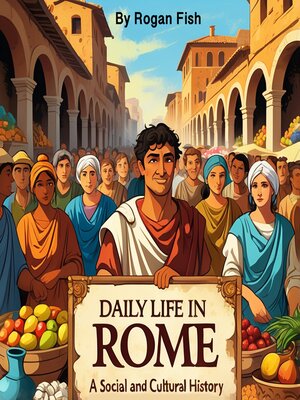
Sign up to save your library
With an OverDrive account, you can save your favorite libraries for at-a-glance information about availability. Find out more about OverDrive accounts.
Find this title in Libby, the library reading app by OverDrive.



Search for a digital library with this title
Title found at these libraries:
| Library Name | Distance |
|---|---|
| Loading... |
The foundation of Roman society was built upon a complex hierarchy that influenced daily life, social interactions, and political structures. At its core, the Roman family served as the most fundamental unit, shaping personal identity, social standing, and economic stability. The paterfamilias, or male head of the household, wielded significant authority over his family, including his wife, children, and even enslaved individuals. Roman families emphasized duty, tradition, and respect for elders, with ancestral lineage playing a crucial role in societal reputation. Women, while largely confined to domestic roles, could exert influence within the household and, in some cases, in business affairs. Marriage alliances were also instrumental in forging political and social ties, reinforcing the interconnected nature of Roman society.
Beyond the family, Roman society was stratified into distinct classes, each with its own privileges and restrictions. At the top were the patricians, an elite group of aristocratic families who traditionally held political power. Their wealth and influence allowed them to dominate the Senate and other governing bodies. Below them were the plebeians, a broad class of commoners that included farmers, artisans, and merchants. Although they had fewer political rights in the early Republic, the plebeians gradually gained influence through social and political struggles, such as the Conflict of the Orders. The lowest tier of society consisted of enslaved individuals and freedmen. Slaves were often prisoners of war or those born into servitude, playing essential roles in both households and large-scale economic activities. Freedmen, formerly enslaved individuals who had gained their freedom, occupied an intermediate status, often working as skilled laborers or entrepreneurs while still facing social limitations.







